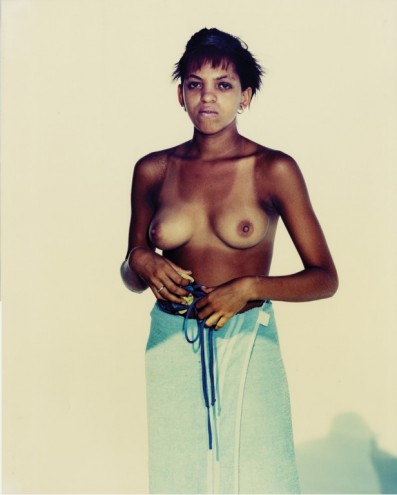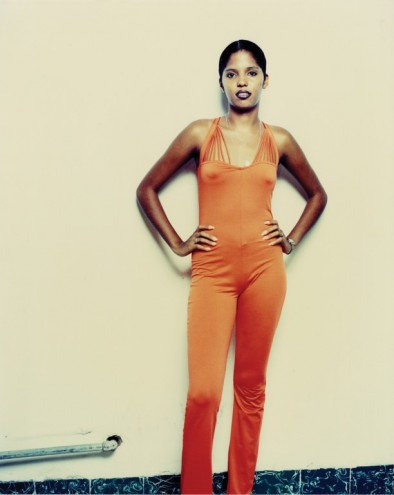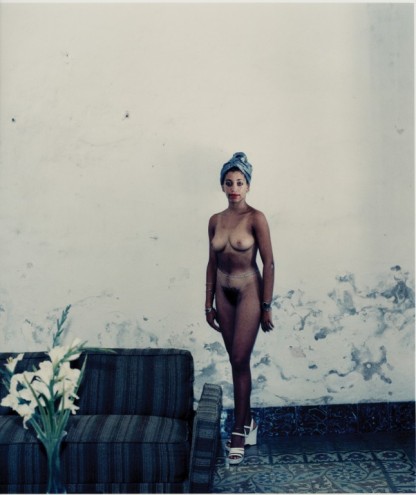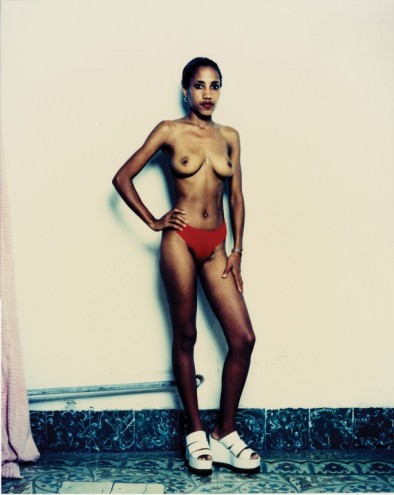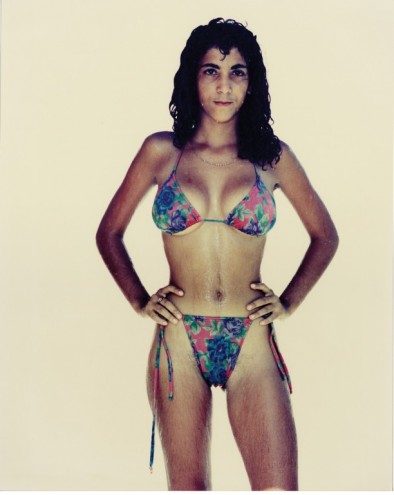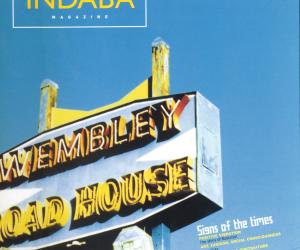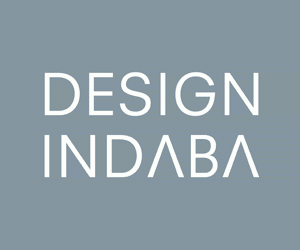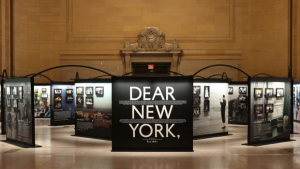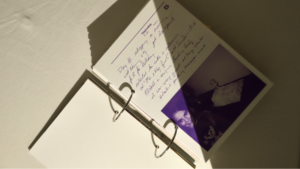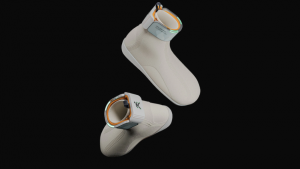First Published in
Any special motivation behind this particular choice of subject matter?
The series is totally based on deconstructing portraiture - about photographing the shells of people rather than trying to catch an intimate moment or "the decisive moment" as Cartier-Bresson would have called it. This is about photographing a portrait in the most basic way. Remember I don't speak Spanish and the subjects spoke no English so in a way they're self-portraits. They were done with very little direction. All that I did was make sure all they were doing was looking directly to me so that the viewer has somewhat more permission to be gazing at these people than if they were looking away.
I wanted to get a group of women that were comfortable with being undressed. I was in Cuba and did not want to do the usual Cuban project. I didn't even go there for that specific reason. In Cuba, this is not such a looked-down-upon thing within the poorer classes. It's just another way of earning your money. Most of the girls are trying to be dancers or singers, they're not hardcore prostitutes. My camera is not fixed on that because they're prostitutes but because they're women who are comfortable. If I'd photographed them clothed, they would have told you far too much about themselves, about their class, who they were, what their profession was. They would have told you all of that in an instant. And that's what I'm talking about, deconstruction. In my portraits I'm more interested in the 'carcass' of a person than in their soul, what they're thinking and all that stuff. To me this vacant approach is a more interesting one.
So yours is the 'anti-essence' approach as opposed to photography that is set on finding something 'essential' e.g. beauty or grace in women.
None of my work at the moment is about documentation at all. That isn't an interest of mine - it never has been. I do admire people like Cartier-Bresson - the man, that genre and magnum of work - but that's not what I do. I'm far more intrigued with stitching into my framework something that is more about unease, quietude and loneliness. I'm also interested in capturing long spans of time on one piece of film. This is why I photograph at night. It fits into the framework of the loneliness. I enjoy photographing scenes where, had you visited an hour ago or a month later, they would have been the same.
The quest for timelessness?
Yes. Your exposures may be an hour, two hours or three hours long so you collapse a whole period of time onto this piece of film.
How did you source the subjects and how did you find the experience of working with them?
I had an interpreter with me in Cuba who would literally walk up and down and talk to the girls. He would just walk up to people and explain whet we were doing and I had some of my other work with me and I'd show them and a lot of girls trusted and went with it, then some girls helped find other girls and so it worked. It was bit tense because it's illegal. After all the work was done - about two or three days - it totally collapsed. Somebody got wind of it or something. I never found out what really happened. It just wasn't possible to do it anymore.
They certainly seem forthcoming and at ease.
Totally. Once they trusted me, when they saw that I just wanted them to stand on the boat and look at me, they were very happy. I made sure that everybody knew and understood what it was for. Exploitation is something I am wary about. Every time you take a photograph of a person whether they're clothed or not, to some degree there's some exploitation going on. If I take a picture of you and show it on a screen there'll be some of that going on. With this kind of thing one can be accused of it more so. Personally, I feel quite at ease with it and that's really what's important.
I must say that as a woman looking at these photographs, I am not unduly threatened. Somehow I don't see them as being as loaded as I find Playboy images, for example, in terms of the depiction of the female form. You have deliberately unloaded it of those specific meanings. But by doing this, you are ascribing them the opposite meaning. Is this an intentional device?
Not at all. What I do is very intuitive. I don't generally set off on a project knowing why I'm doing it. So I don't generally have a clear set of intentions when I set off. I find them later on. This was a clear project that started and ended very quickly. I just made sure that, for me, the right intentions were coming across, that I was working intuitively. When I do that I feel I'm entirely responsible for the pictures that come out of me. When I set off with intentions things become clouded. I can't really intellectualise it much more than that.
As a photographer, you have the power, through your work, to make certain statements and influence society's perspectives on specific issues. Do you feel any sense of responsibility over what your work "says"?
My work is done for such personal reasons. I photograph things that nourish me. It's for other people to intellectualise that, not me. The viewer must say, feel or ask anything they want of themselves and of me. My pictures do ask many questions to which I don't have the answers and I think that there probably are no answers. But it is about asking questions and not necessarily getting the answers. Which is the difference between Playboy and this. There are all the answers in Playboy, it does everything that it's intended to do. There is nothing more to it - it's much more linear.
So are you moving more away from commercial photography?
Not at all. I just want to halt the perception that I only do advertising photography which is what a lot of people know me as. I am simply a photographer who has been used commercially. A lot of artists work in the commercial arena and really try to hide it. I'm not trying to hide it. I do both and it's working for me. I entirely love good advertising. I don't enjoy poor advertising, but nobody does. But good advertising is really exciting. The coming together of people photographing a commercial whether it's for a record sleeve or whatever. It happens quickly, one to three days and it goes out. Whether it's an ad for Vodka or Haagen-Daaz, 30 million people might see it three months later. That is really exciting participation and I love doing that. The upside is that my passions are wide. I'm not intellectually an artist at all but intuitively maybe I am. I don't have the talk, I don't say the lines.
Certainly all the better for the benefit of your work. How would you define the place where you're at now professionally?
Within the commercial world things are pretty much where I've always wanted them. I'm called in as a collaborator and get more involved in the process quite early on. For 10 years now I've been called up as a photographer where people don't call me in just to do a job. They really call me up to do the pictures that I do. And all the successful jobs I've done have been where people have responded to work of mine that they've seen and thought 'I want some of that for this.' That's pretty much where I want to be. In the art world I'm still very much in the beginning stage. I've waited to do this for a very long time, mainly because I haven't thought that I was at the right stage. I've always done my own work but felt that the collection was disparate. I only started realising when I started putting the book together that there was a very strong thread going through it. And only when I started describing that thread did I realise that I was describing myself. That's when I started thinking that actually I might be a good artist, even in my not knowing. At least it's truthful because it's intuitive. I'm not bullshitting anyone. I'm not thinking "what's current, my art should be doing this or that." I don't even go to current shows much. I go to the Tate and have a look at what I like, but I certainly don't keep up with the art world. And I think it's a good thing. I also don't want to bring out my insecurities with comparisons. I just want to progress in the way that my body wants me to. Not accelerated or going off at a tangent. I want to be a really straight tree if I can, rather than a really branchy tree.

